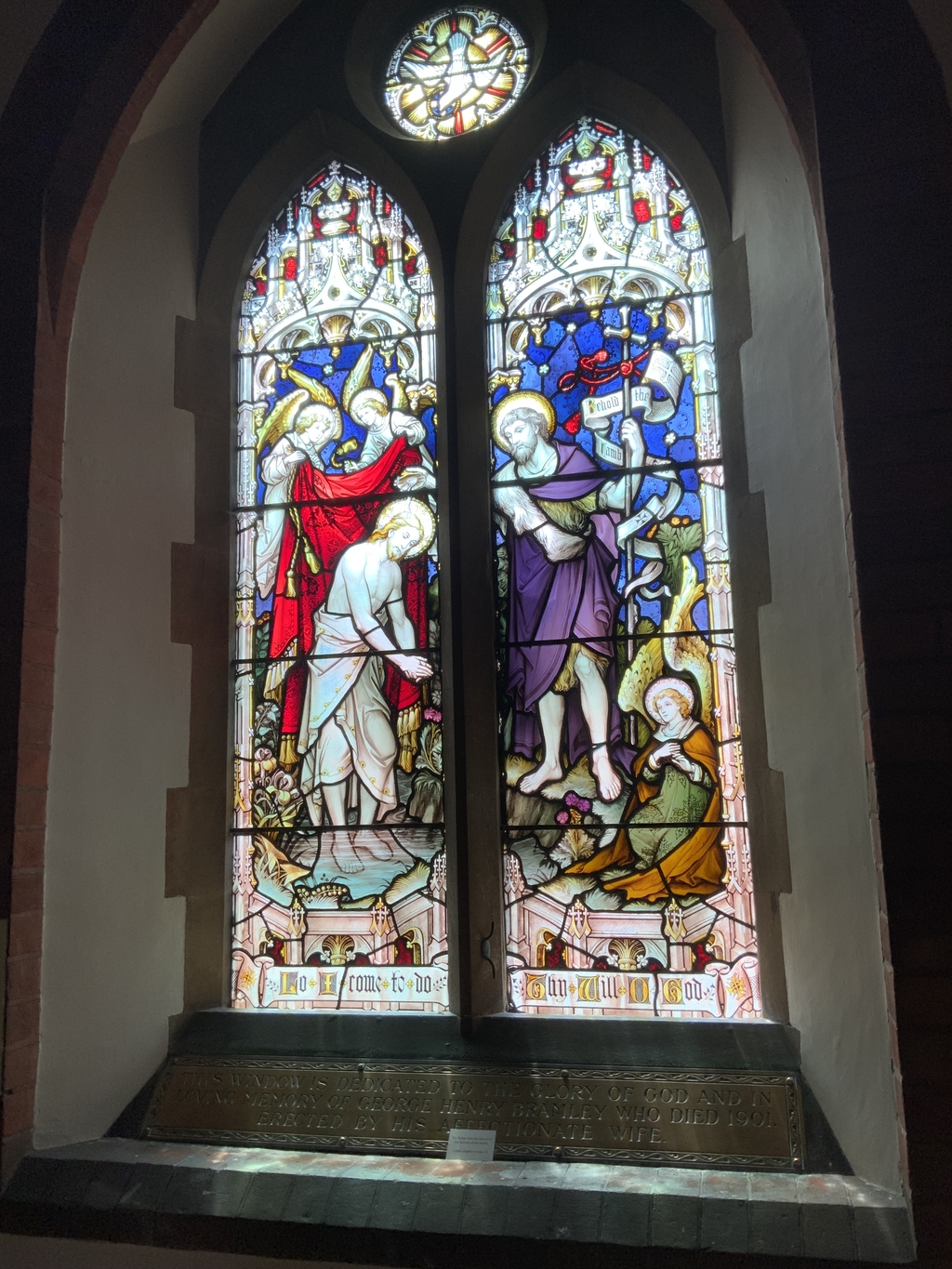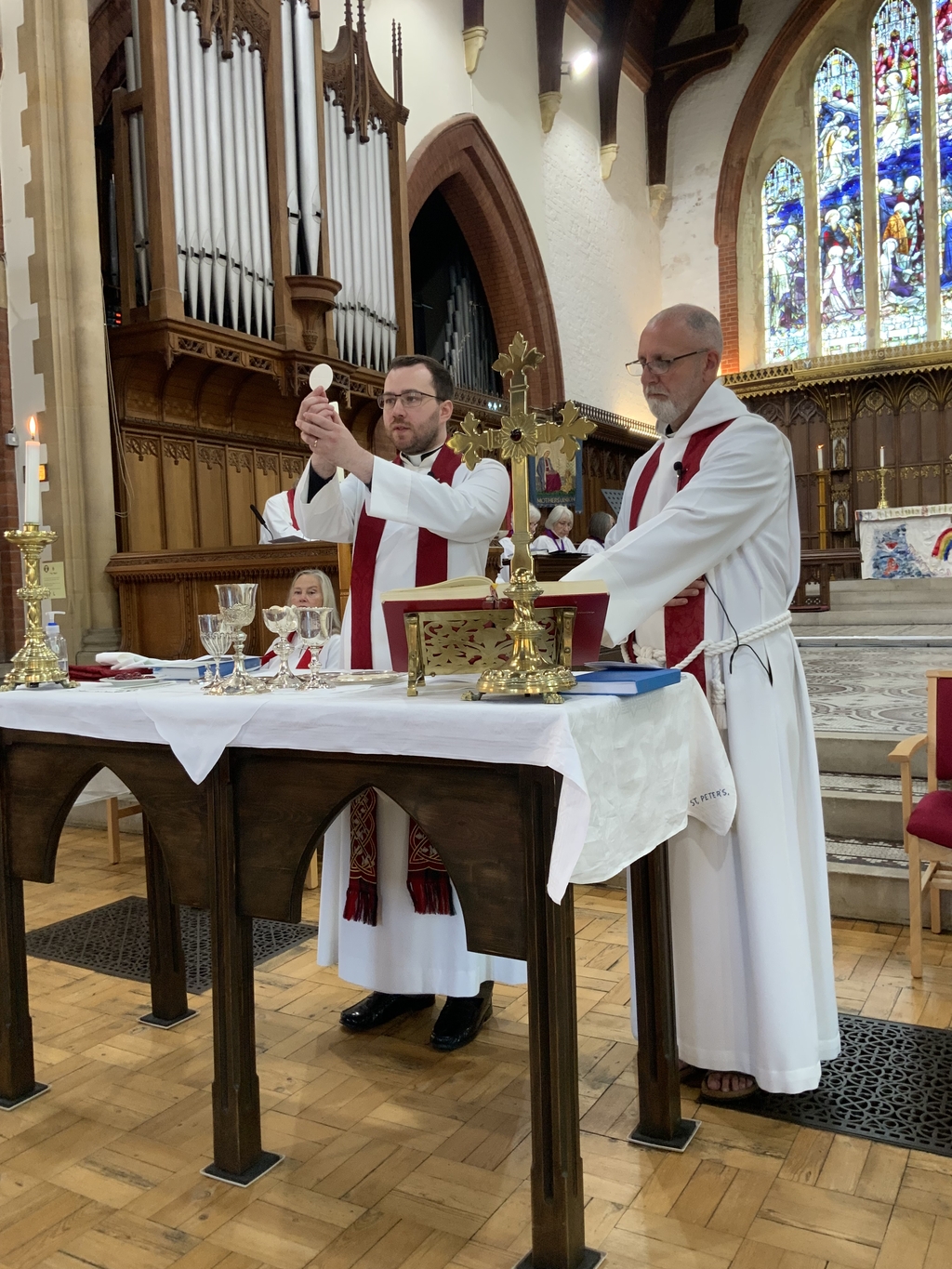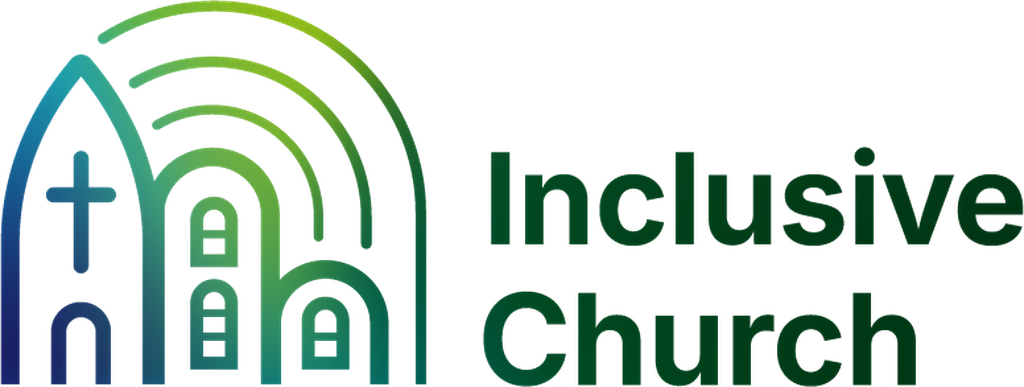Last week, the First Sunday of Lent, the Vicar helped us look at the theme `Who are you?`.
This week, the Second Sunday of Lent, we think about the contrast between the lifestyle of those who follow Christ and those who have taken another route through life.
We might call the theme `Where do you belong?`
Our Gospel reading reminds us of the continued presence of war in our world: the Pharisees come to Jesus and warn him that King Herod wants to kill him: he is urged to escape to safety. We read of the sadness of Jesus as he responds: `Jerusalem, Jerusalem, you who kill the prophets and stone those sent to you, how often I have longed to gather your children together, as a hen gathers her chicks under her wings, and you were not willing.` There are tears also from St Paul writing to the church in Philippi: `As I have often told you before and now tell you again even with tears, many live as enemies of the cross of Christ.`
Paul speaks about two kinds of citizen, whose lives are marked in different ways.
A warning about being the wrong kind of citizen
1. Paul is clear: living as an enemy of the cross of Christ is the first mark of those who follow another path. Whether people are indifferent to the cross or opposed to it, it amounts to the same thing. People talk about the good example of Jesus and of the importance of loving one`s neighbour. But the cross so often proves a stumbling block to belief.
2. Secondly, those opposed to the cross live their lives based on secular values and the culture of relying on self. For some it might be over-indulgence on a house or a car. For others it is too much time spent on unhelpful activities, whether it is overeating or over emphasis on things in a way that makes possessions the most important things in their lives. As Paul puts it, `their god is their stomach`.
3. Thirdly, such an attitude means that there are no fixed moral values and no authority needs to be recognized outside a person`s own satisfaction. They find it hard to acknowledge the spiritual dimension of life and to respond to Christ`s call. They are bound by the horizons of this world and often they think only in an earthly way. Paul is clear: `their destiny is destruction, their god is their stomach, and their glory is in their shame. Their mind is set on earthly things`.
An encouragement about the right kind of citizenship
Paul encourages us to a different path. Verse 20: `But our citizenship is in heaven.` Whatever our nationality, whatever our passport says, if we are following Christ, calling ourselves Christians, we are citizens of heaven. We know that our present life is passing, that we are bound for heaven. We look forward to Jesus coming again, which governs our present behaviour and shows to whom and where we belong.
That is not to say that we succeed all the time – far from it! We need to be aware of the pull of earthly values and stand firm against unhelpful influences. We endeavour to follow Jesus in the power of the Spirit. Paul in verses 13 and 14: `I press on to take hold of that for which Christ Jesus took hold of me. .. I press on towards the goal to win the prize for which God has called me heavenwards in Christ Jesus.` We rely on the finished work of Jesus who bore our sin in his own body on the cross, recreating us in his image. Paul`s words: Christ will `transform our lowly bodies so that they will be like his glorious body.`
Such a transformation enables him to be glad of who we are in Christ: `My brothers and sisters, you whom I love and long for, my joy and crown, dear friends.` He celebrates our destination in chapter 1, verse 6, that he is `confident of this, that he who began a good work in you will carry it on to completion until the day of Christ Jesus.`
As we continue through Lent, continuing also to pray for Ukraine and the Christian church there, amidst the storms encountered on earth, may we show in our lives where we belong and eagerly await Jesus` return.
(Revd) Pat Hopkins











